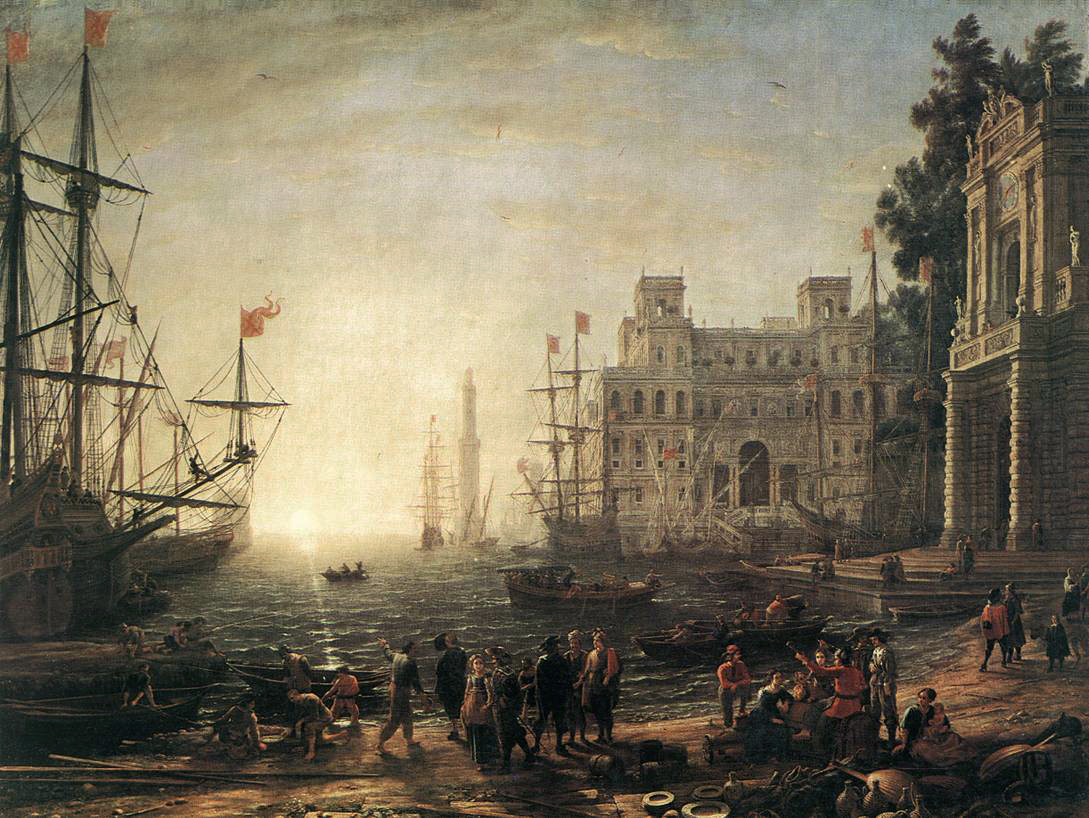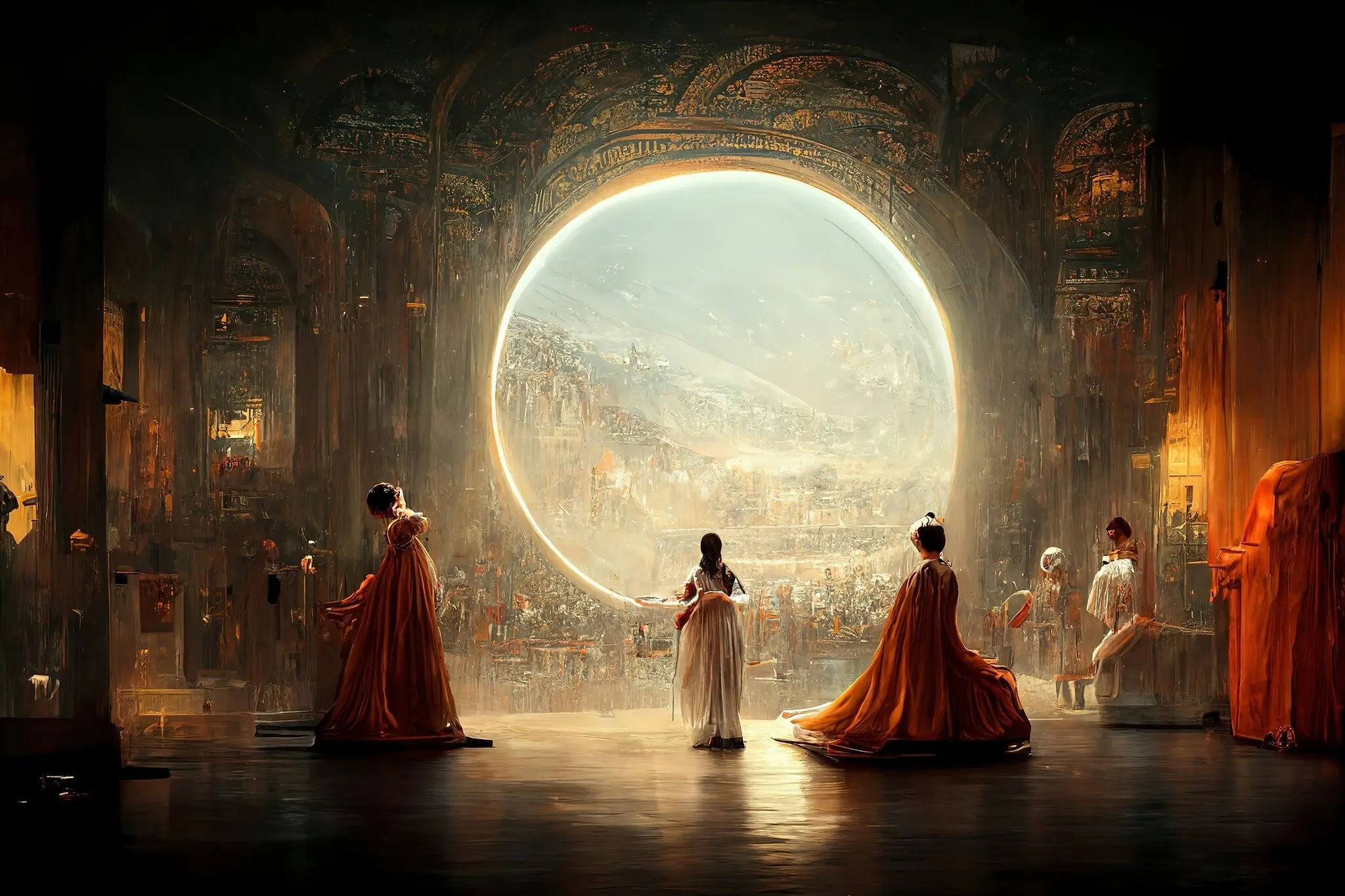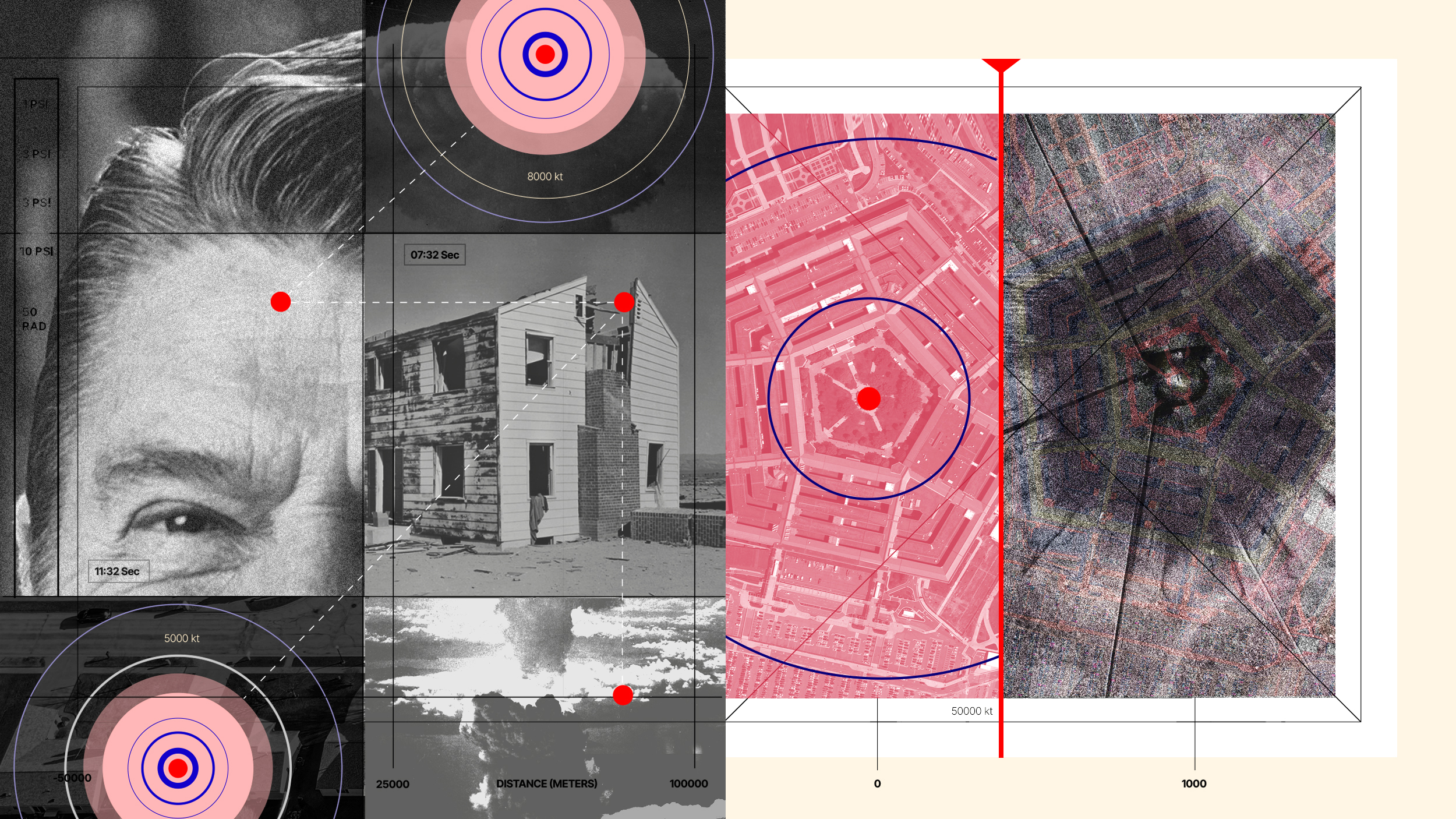Mike Duncan chronicles the history of the future Martian Revolution
Most people think that writing fantasy or science-fiction requires a strong imagination. Podcast host Mike Duncan shows a knowledge of real-world history is just as important.

- Mike Duncan’s Revolutions podcast chronicles history’s greatest revolts, such as the French Revolution and the Bolshevik insurrection.
- The podcast’s newest season looks to the future Martian Revolution but mines Earth’s past for inspiration.
- For Duncan, writing fantasy and sci-fi is not too different from studying history.
Ominous strings of Austrian composer Joseph Haydn’s “Oxford” Symphony (No. 92) announce the beginning and end of each episode of Revolutions. The podcast, hosted by author Mike Duncan, walks listeners through history’s most significant turning points, from the French Revolution to the Bolshevik insurrection. Its new season shakes up the formula. This time, Duncan isn’t talking about a terrestrial dustup. He’s chronicling the Martian Revolution.
No, Duncan isn’t some wacko conspiracy theorist. He knows the Martian Revolution hasn’t happened (yet). While his latest project uses the same format as past seasons of Revolutions — with frequent references to primary sources, academic studies, and their possible biases — it is fundamentally a work of fiction. But it’s not entirely fictional. The Red Planet’s impending revolt is informed by the real-world historical developments Duncan has studied for the better part of his professional life.
In fact, Duncan first arrived on the podcasting scene in 2007 with The History of Rome, a colossal 179-episode-long account of Rome’s evolution from a community of vagabonds into a kingdom, a republic, and finally an empire. At the time, the podcasting scene was a tiny fraction of the $18 billion industry it has become. As one of the originals, Duncan is frequently — and rightly — credited for contributing to this growth. Along the way, his skills as a storyteller also turned hundreds of thousands of people into lifelong history buffs.

Talking with Big Think over Zoom, Duncan says he hadn’t tackled fiction since his college days of typing out reams of half-finished manuscripts. Returning to fantasy and science fiction after years of nonfiction writing, he finds that his detour into podcasting hasn’t hurt so much as it has helped him. In addition to making him a better writer overall, his knowledge of civilizations — how they change, make war, maintain peace, and divide resources — allowed him to construct an alternative reality that’s as complex and believable as J.R.R. Tolkien’s Middle-Earth, George R.R. Martin’s Westeros, and Frank Herbert’s Arrakis.
“Real history is often more interesting and unexpected than anything you could invent,” Duncan says. “Real people and real events are funnier, more tragic, and more sophisticated than anything you can make up.”
Render unto Caesar
Duncan’s Martin Revolution begins when scientists on Earth find they can produce energy from a newly discovered element found on Mars. The discovery prompts the planet’s gradual colonization by corporations, not unlike in James Cameron’s Avatar or Bong Joon Ho’s Mickey 17. Trouble starts when the first generation born and raised on Mars develops an identity separate from their ancestral Earth and casts their minds toward independence.
Obviously, the Martian Revolution pays homage to several fantasy and science fiction works. Similarities to Avatar and Mickey 17 aside, Duncan points to Robert Heinlein’s The Moon is a Harsh Mistress, a 1966 novel in which a lunar colony inspired by libertarian ideas revolts against Earth, as well as The Expanse, a TV show in which Earthlings colonized the solar system and Mars emerged as a powerful, independent military force. And like so much science fiction since 1965, Duncan is indebted to Dune, which Herbert — an insatiably curious jack-of-all-trades who studied various disciplines before settling on the writer’s life — claimed could be read through the lenses of history, politics, religion, and ecology.
“I haven’t read Dune in ages,” Duncan admits, “but it was the first time I encountered a story with its own mini encyclopedia in the back.”
While Duncan’s Martian Revolution is bedecked in sci-fi trappings such as infinite energy loops and life-elongating medication, the nitty-gritty plot details are taken straight out of history. For example, Mars’ initial settlement is carried out by corporations rather than governments, and the exploitative economic relationship that subsequently develops between the Red Planet and Earth reflects the mercantilist systems that gave rise to such conflict as American Revolution, the Haitian Revolution, and the Spanish American wars of independence.
“There are archetypes that recur throughout history,” Duncan explains. “Liberal elites seeking reform, educated professionals whose political power doesn’t match their social status. Revolutions involve civil wars, foreign interventions, and the interplay between these elements. That’s what I used to build the story.”
Just as professional artists study anatomy before they can draw and paint realistically from imagination, so does studying the real world help you build a non-existent one.

“I have this idea I call the ‘great idiot theory of history’ to counterbalance the great man theory,” Duncan says, “Revolutions don’t happen because of tyrannical regimes or oppressed people alone. Misery is a constant in history. Instead, they happen when a broken social, economic, or political system is steered by inadequate rulers. Charles I didn’t have to impose the Book of Common Prayer on the Scots, but he did, and it blew up in his face. Louis XVI and Nicholas II weren’t bloodthirsty tyrants but made mistakes that created openings for revolts.”
In the Martin Revolution, one such inadequate ruler is Vernon Bird, an ambitious businessman who works his way up the corporate ladder of Mars’ governing company, Omnicorp. Despite starting out as a CEO-king who successfully keeps his thumb on the Martian people, his dependency on life-elongating drugs causes his mind to deteriorate. Of course, the drugs also elongate his life, creating this nightmarish scenario in which corrupt officials take advantage of their senile boss, simultaneously fomenting public unrest and undermining Omnicorp’s ability to contain it.
Reverse engineering the Martian Revolution
Duncan’s interest in fantasy and science fiction has always been closely connected to his interest in history. “When I went to school, I started in the literature department because I wanted to be a writer of some type,” he recalls. “But I didn’t like deconstructing literature. The writers I admired — Vonnegut, Philip K. Dick — were all literate in history, philosophy, and politics, engaging with these subjects and bringing them into their fiction.”
“I try to keep everything balanced,” he says of his own approach. He adds that while he often devotes significant attention to the historical roles of forces like class and capital, he is “not into historical materialism as an abstract force driving history. I don’t believe anything is inevitable. I focus on contingency and individual decision-making — on the people in place and their choices.”
Those who think history is too dull to inspire a riveting work of fiction should think again. “I always push back on the idea that history needs to be spiced up to make it exciting,” Duncan says. “There’s this notion you need professional writers to improve it, but you can’t write a better Lenin than Lenin or a better Napoleon than Napoleon. Real history is already full of incredible material. That’s what makes it so compelling.”
That’s not to say history always makes for a compelling story. “The downside of narrative history,” Duncan points out, “is that storytelling can sometimes attempt to take precedence over a true accounting of events, where the facts end up in service of the story rather than the other way around. Sometimes I look back and think I could have explained something better had I not gotten myself caught up in the plot.”
For projects like the Martian Revolution, Duncan allows a bit more creative wiggle room. He is talking about something that hasn’t happened, after all. Still, the rules of sound historical inquiry remain his guiding lights, whether he’s talking about actual civilizations or made-up ones.
History repeats itself
Fantasy and science fiction have more in common with history than you may think, as their fictional worlds are closely connected to ours. Fantasy in the tradition of Tolkien — who wanted his stories to take place in fully realized, internally coherent settings — reflects aspects of the real world, applying historical processes to untested scenarios. Meanwhile, science fiction is fundamentally an exercise of looking at how developments from the past and present can be extrapolated into the future, of seeing how humanity would adapt to new environments and technologies.
Good science fiction can, to some extent, predict the future. Mary Shelley’s Frankenstein; or, The Modern Prometheus foreshadowed medical practices like resuscitation and reproductive cloning. The works of H.G. Wells anticipated technology from tanks and aircraft to atomic weapons. Duncan’s Martian Revolution, for its part, foresaw the close collaboration between Musk and Donald Trump.
“The thing that drives me crazy right now is that I plotted all this stuff out two or three years ago. I had all these plot points about this ‘great idiot’ in charge — someone who starts firing people, rolling out disruptive programs, and not caring about the fallout. It starts with this gerontocracy where elderly, positively ancient people are still running a company even though they shouldn’t be,” Duncan says
“I released the first episodes in October and November, and two months later, Elon Musk is doing it right in front of my eyes. A lot of what’s happened since Trump took office is eerily similar to what I wrote about. People are tweeting at me, ‘This is just The Martian Revolution!’ even though I had these ideas planned long before they happened.”
Despite how well his fictional experiment turns out, Duncan is eager to return to his bread and butter once it’s over. “I’ll pick up where we left off at the end of World War I and dive into the 20th-century revolutions we never got to,” he says of the Revolutions podcast. “But I would love to try my hand at historical fiction in the future. I have some ideas inspired by Rome, the revolutions I’ve covered, and just wild ideas. I’ve got, what, 30 or 35 years left on this planet? I hope to get some more stories out there in that time.”





